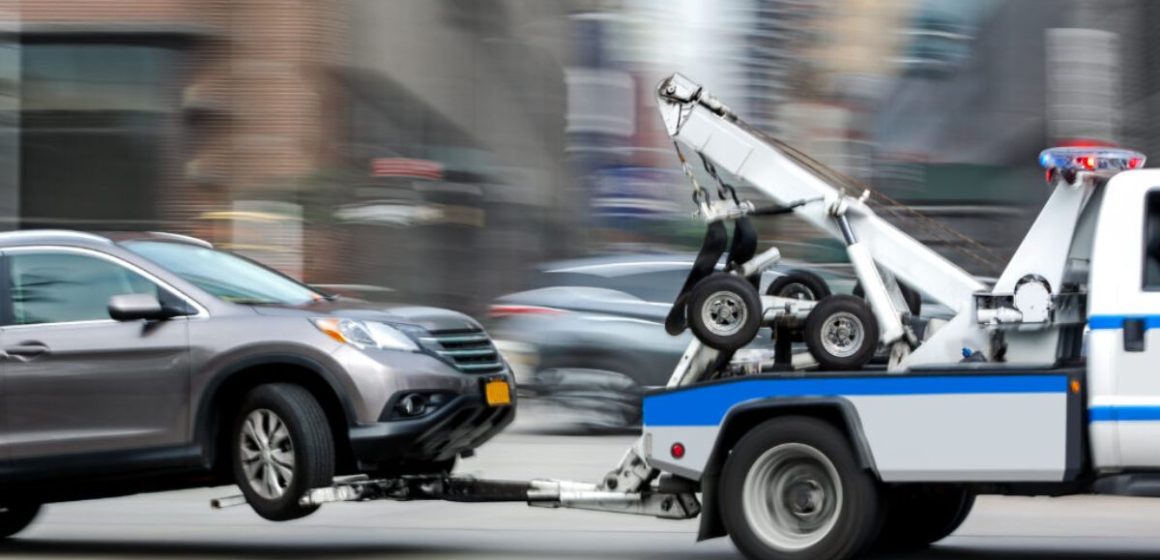Towing can be both stressful and costly, especially when it happens unexpectedly on private property. In California, there are specific laws designed to protect vehicle owners from illegal or predatory towing practices.
Whether you parked momentarily outside a store or live in an apartment complex with unclear signage, understanding your rights is essential. Here’s what every Californian needs to know about private property towing.
California’s Private Property Towing Laws: The Basics
California law allows property owners to have unauthorized vehicles towed from private property—but only under certain conditions. These rules are outlined in the California Vehicle Code § 22658 and are meant to prevent abuse and provide transparency for vehicle owners.
Key Points of the Law:
- Signage Requirement: A property must have clearly visible signs at every entrance warning that unauthorized vehicles will be towed at the owner’s expense. The sign must be at least 17 inches by 22 inches with 1-inch lettering.
- Immediate Towing vs. 1-Hour Wait: If there’s no proper signage, the property owner or tenant must wait at least one hour after contacting law enforcement before towing. However, if signs are properly posted, towing can occur immediately.
- Notification to Local Law Enforcement: Before a car is towed, the towing company must notify the local police or sheriff’s department. This is crucial because it gives owners a point of contact to verify the tow and location.
Who Can Authorize a Tow?
Only authorized individuals can request that a vehicle be removed from private property. This includes:
- The property owner
- The property manager
- A tenant (in some cases, depending on the lease agreement)
Security guards, unless explicitly granted towing authority in writing, typically cannot request a tow on their own.
Additionally, if the vehicle is within an apartment or condo complex, the Homeowners Association (HOA) or property management must follow proper procedures and give tenants the opportunity to correct parking violations.
What Happens After Your Vehicle Is Towed?
Once your vehicle is towed, the towing company must:
- Notify you within 48 hours if they can identify you as the vehicle’s registered owner.
- Provide a written notice containing the reason for the tow, the towing company’s name and address, and information on how to retrieve your vehicle.
- Allow you to retrieve personal property from the vehicle without charge, even if you can’t pay the towing fee immediately.
If you discover your car is missing, you should first contact local law enforcement. If it was legally towed, the agency will have a record of where the car was taken.
Your Right to a “Tow Hearing”
If you believe your vehicle was towed improperly or unlawfully, you have the right to request a post-storage hearing. Here’s how it works:
- You must request the hearing within 10 days of the date you were notified of the tow.
- The hearing is typically held by the local police or sheriff’s department.
- If the hearing officer determines that the tow was not legal, you may be entitled to reimbursement for all towing and storage fees.
This hearing is often informal, and you can present any evidence or photos that support your case. It’s a vital protection against unjust towing practices.
How Much Can You Be Charged?
California places limits on what towing companies can charge:
- Towing and storage fees must be reasonable and based on local market rates.
- You cannot be charged more than one day of storage if you retrieve your vehicle within 24 hours of the tow.
- Towing companies must accept cash and major credit cards—they cannot demand cash-only payments.
If a towing company overcharges or refuses to release your car, you may file a complaint with the California Bureau of Automotive Repair or your local law enforcement agency.
Common Illegal Towing Scenarios
Unfortunately, some towing companies and property owners engage in predatory towing. Watch out for the following red flags:
- No signage warning about towing
- Tow trucks that seem to “patrol” private lots without authorization
- Demands for cash-only payment
- Towing without police notification
- Blocking access to retrieve your car or personal belongings
If any of these occur, document everything and file a complaint immediately.
Tips to Avoid Getting Towed
- Always check for signage before parking, especially in lots attached to stores or apartment complexes.
- Don’t park in fire lanes, disabled spots, or in front of driveways—these are immediate tow zones.
- Follow visitor parking rules in residential areas.
- Double-check your car’s position—even slight encroachments on another space or a red curb can be used as justification.
- If your car breaks down, leave a note and contact the property manager if possible to explain the situation.
Conclusion
Towing from private property in California is legal, but only under strict guidelines meant to protect both property owners and vehicle owners. Knowing your rights can save you hundreds of dollars and a lot of frustration. If you feel your car was towed unfairly, don’t hesitate to take action—state law is on your side.



Leave a Reply